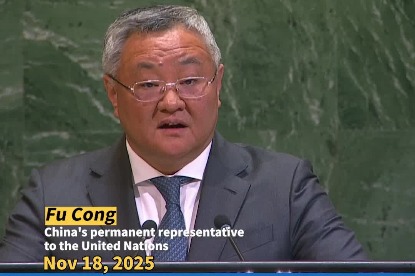Chinese market remains vital for US firms


A fraught US-China relationship and punitive US tariffs are imposing real costs and undermining the competitiveness of US companies, leading to lost sales, severed customer relationships and reputational damage, according to the 2025 Member Survey released by the US-China Business Council on Wednesday.
Despite strong headwinds, the annual report underscores that nearly all US firms view their China operations as vital — emphasizing China's role as a critical market for accessing a vast consumer base and driving innovation.
Sean Stein, president of the business council, said "the ability to operate in China's fiercely competitive market" remains "nonnegotiable for American companies", which allows them to access "a burgeoning middle class while honing new technologies and practices essential for maintaining global competitiveness".
Conducted from March to May, the survey of 130 member companies — 82 percent of them with over 20 years of operations in China — found that eight out of 10 companies were reporting profits in China last year.
The Trump administration's aggressive tariff announcements on April 2 have exacerbated costs, shaking business confidence and derailing investment plans.
"We can now see from the data (that) the tariffs aren't free," said Stein during a news conference on Wednesday, which saw the launch of the report. "They impose real costs on American companies in both China and the United States."
Stein pointed to a shift in business challenges, with three of the top five concerns being geopolitical, driven by US policies.
"None of the top five" are traditional regulatory issues, he said. US-China relations remain the top challenge for the third consecutive year, while tariffs surged from eighth in 2024 to second in 2025.
Impacts of tariffs
The report said that US tariffs are hitting bottom lines hard, with 68 percent of companies reporting impacts — a figure potentially understated as some responses were collected before the April 2 announcements.
Kyle Sullivan, the report's lead drafter, said, "If you break it down by sector, it's over 90 percent of the industrial manufacturing companies, over 90 percent of the technology companies … they felt the impact from tariffs".
For 75 percent of respondents, rising input costs are the biggest challenge — disrupting production and squeezing profit margins, the report mentioned.
The survey shows that in response, 39 percent of companies are reorienting supply chains.
"On the flip side, you have 60 percent of the companies that are not really taking any action," Sullivan said.
The report also said that US export controls further erode competitiveness, with 40 percent of companies reporting negative effects, including lost sales (50 percent due to customer uncertainty) and market share declines (59 percent).
According to the survey, profitability remains resilient despite the challenges, with 82 percent of companies reporting profits last year. However, only 25 percent expect China's profit margins to exceed their global average in 2025.
The report noted that China's market remains indispensable. Over 80 percent of respondents invest to serve China's vast domestic market, leveraging its scale and innovation opportunities.
"They're in China for China," Sullivan said.
As trade talks continue, 75 percent of companies described lowering tariffs for a "durable solution" as the priority, Sullivan said.
































